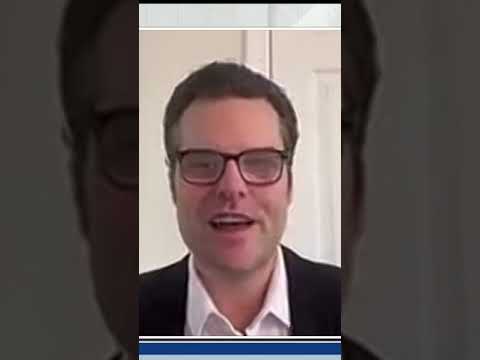In the latest news from the swirling world of Washington politics, Matt Gaetz, a prominent figure in the Republican party, found himself embroiled in a controversy that seems like a scene pulled straight from a political drama. According to Gaetz, the allegations that have been tossed around by various media outlets and political opponents are nothing more than a politically motivated smear campaign. He likened the situation to a playbook that many in politics use when they want to take someone down, complete with all the theatrics one might expect, but with far too much embellishment and not enough truth.
Gaetz pointed out that the sources behind the allegations have already been deemed not credible by none other than Merrick Garland’s Department of Justice. This paints a rather colorful picture of the state of trustworthiness within the hallowed halls of Washington. He mused that if the claims laid out by the House ethics report were indeed true, he would likely be on his way to a prison cell. Instead, he remains untouched and ready to continue his work, which some may say is a testament to his resilience, while others may roll their eyes and wonder if he is living in a bubble of self-delusion.
The roots of this particular political drama stretch back to Gaetz’s tough challenge to Kevin McCarthy, the Speaker of the House. Gaetz indicated that the individuals lined up against him were picked by McCarthy himself, suggesting a vendetta fueled by long-standing political grudges. It’s almost like a high school rivalry that has spilled over into adulthood, complete with the gossip and rumors that make up the fabric of political life. This tension raises the stakes even higher, as it becomes clear that Gaetz believes this was not simply a case of political disagreement but rather an orchestrated attack fueled by personal animosity.
Digging deeper into the allegations, Gaetz expressed his thoughts on how easily misinformation can spread in an age dominated by social media and 24-hour news cycles. It’s like a game of broken telephone, where the original message is twisted and turned until it resembles something altogether different. He argues that these false narratives can undermine confidence in political figures, leading to a distrust that sways public opinion and affects voters’ perceptions. In this era of political polarization, it’s easy to see how such tactics can be wielded like a weapon.
Ultimately, as this tale continues to unfold, it shines a spotlight on the very nature of politics in America. It highlights how accusations can become part of a larger narrative, used to undermine opponents rather than ascertain truth. The story serves as a reminder that in the dog-eat-dog world of politics, sometimes it’s not just the truth that gets lost in the shuffle but also the genuine intent behind the actions of those who dare to stand in the arena. With Gaetz vowing to continue his political journey despite the naysayers, it will be interesting to see how this drama plays out in the coming days and weeks, and what other twists and turns await as the story develops.



